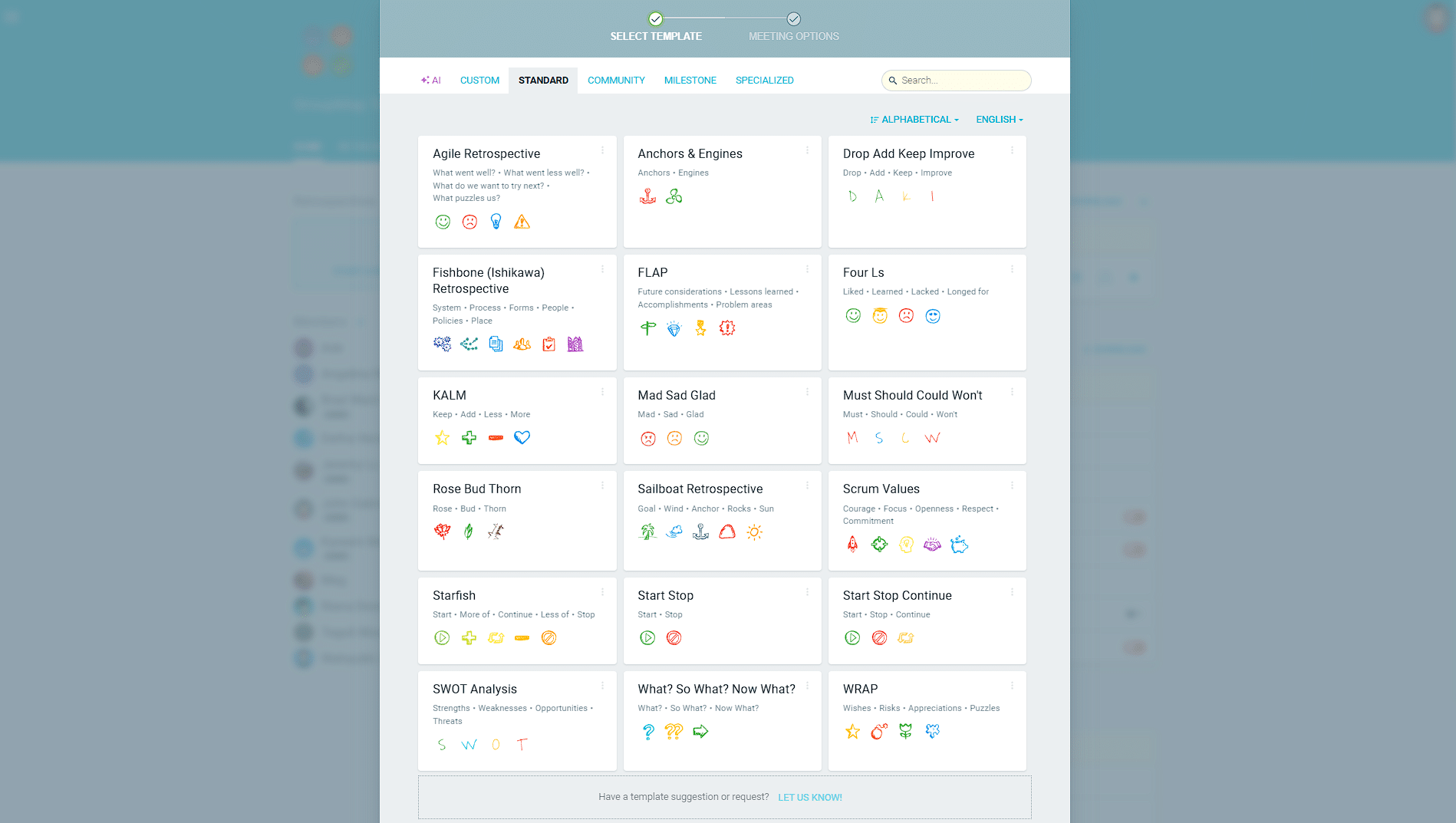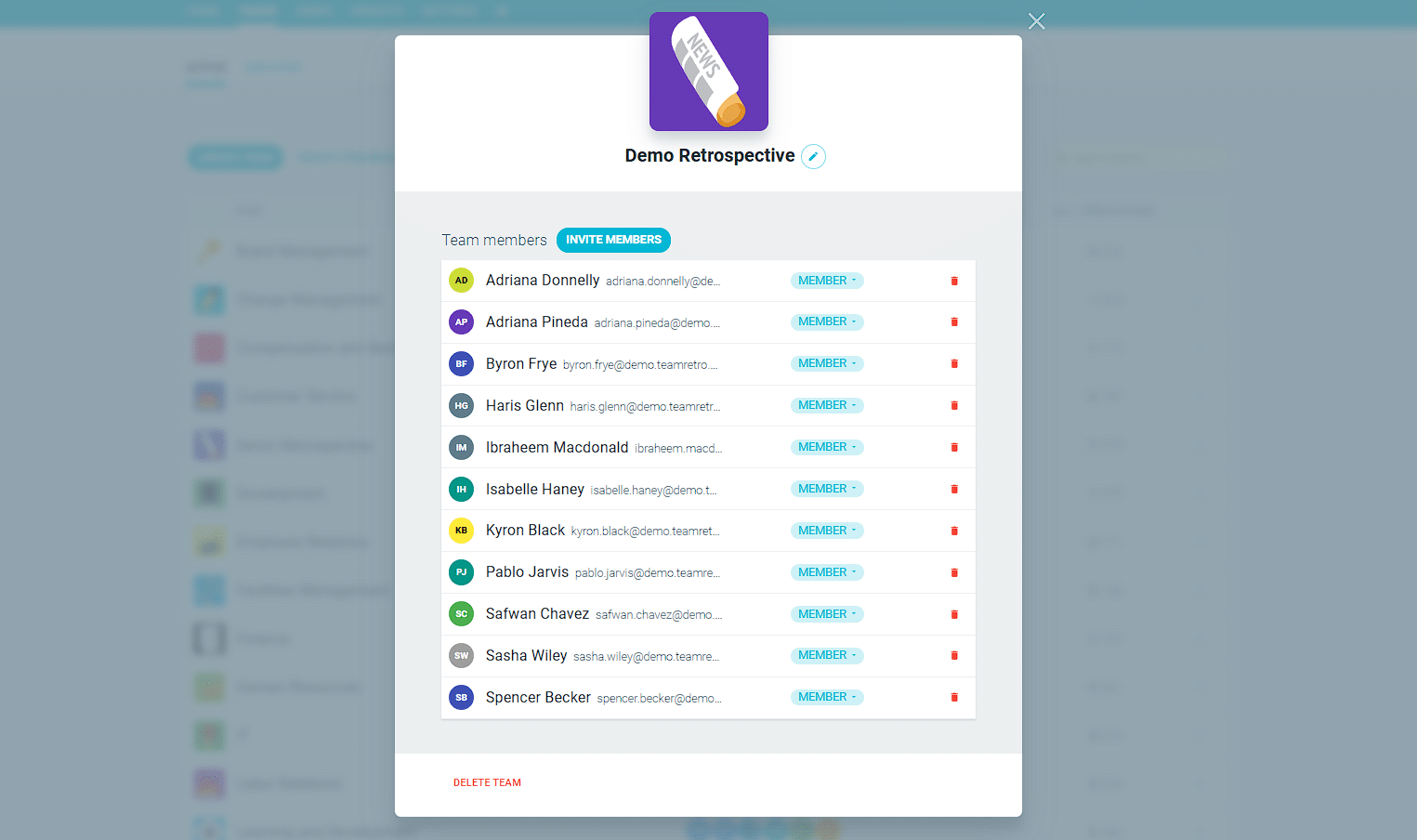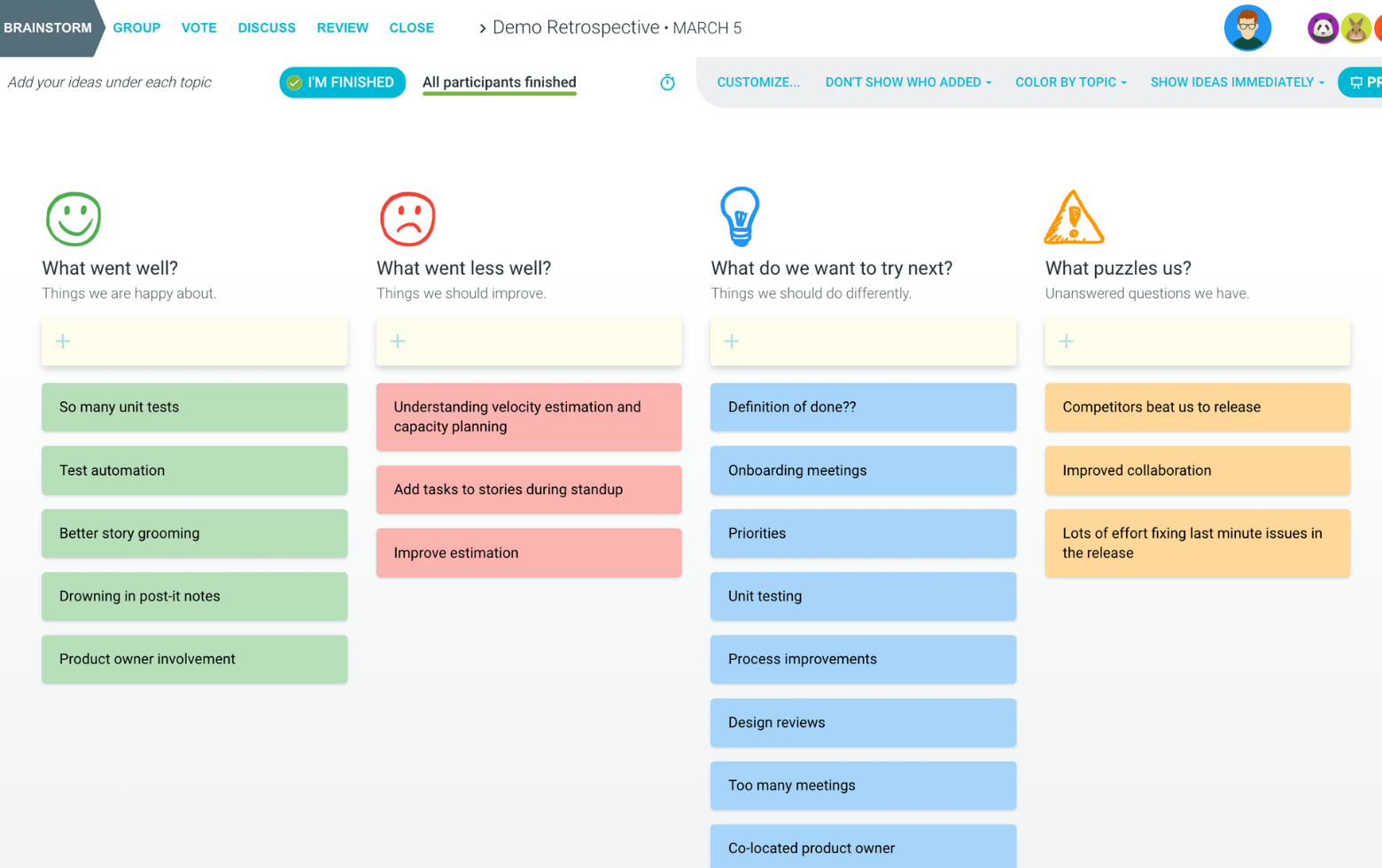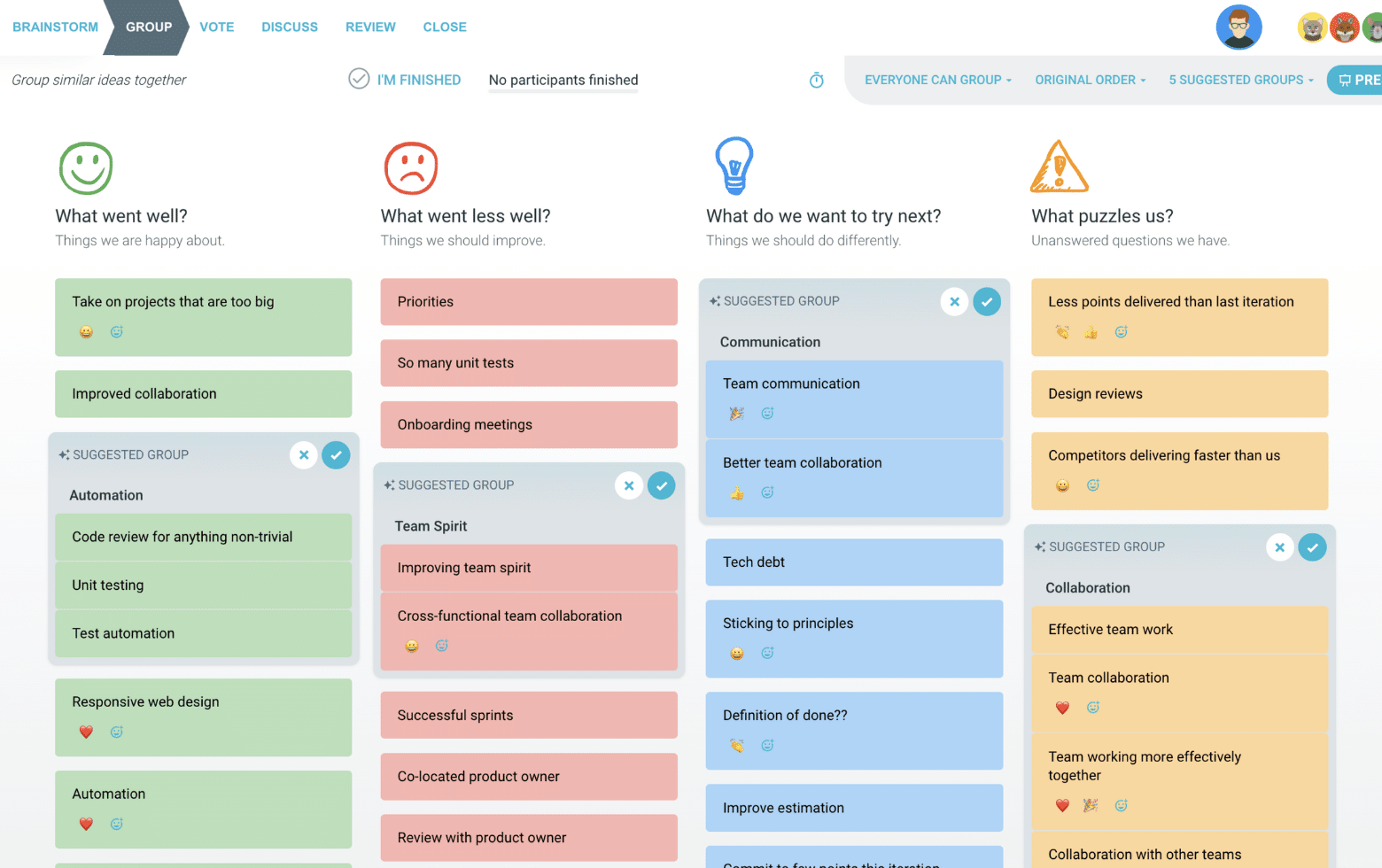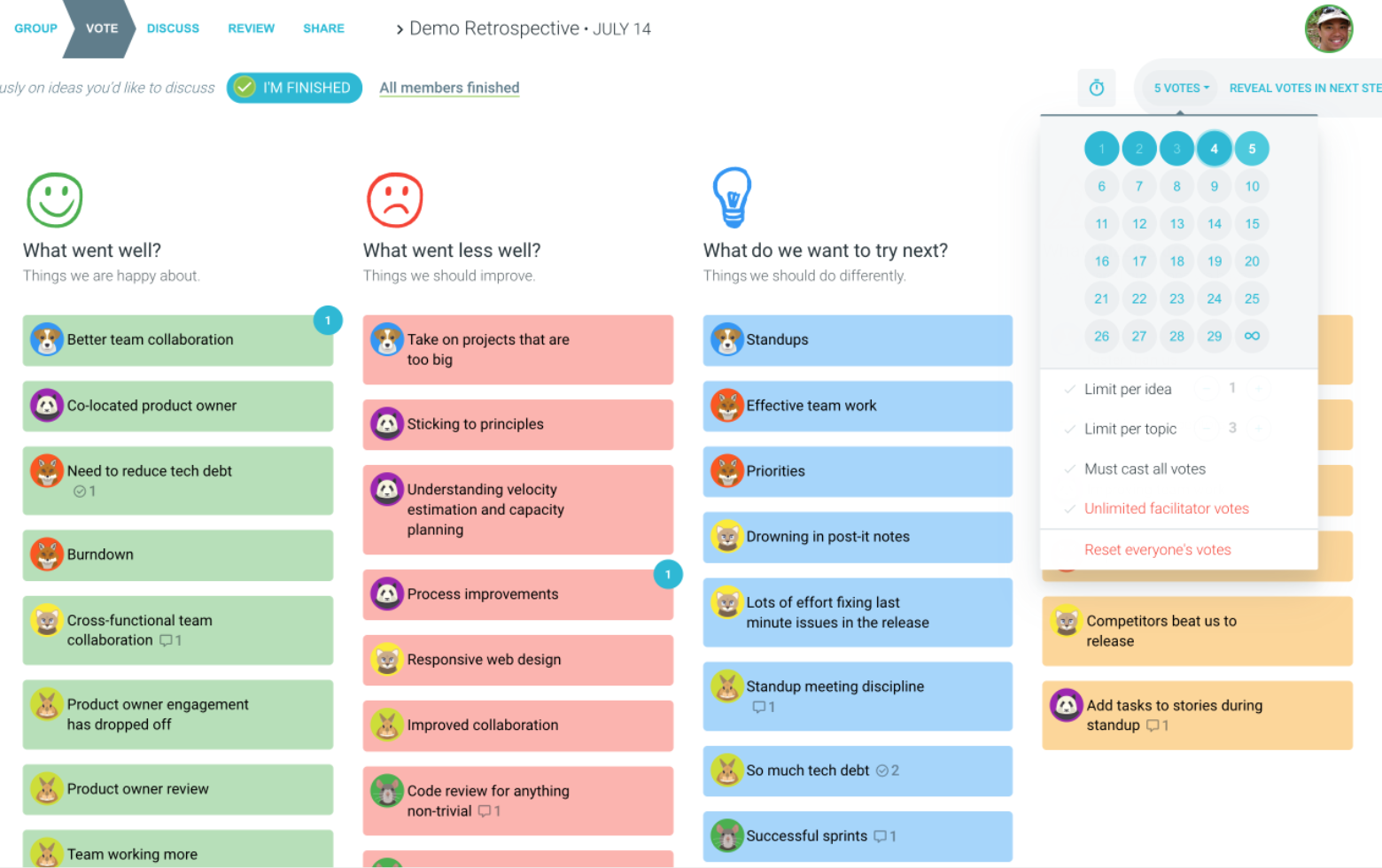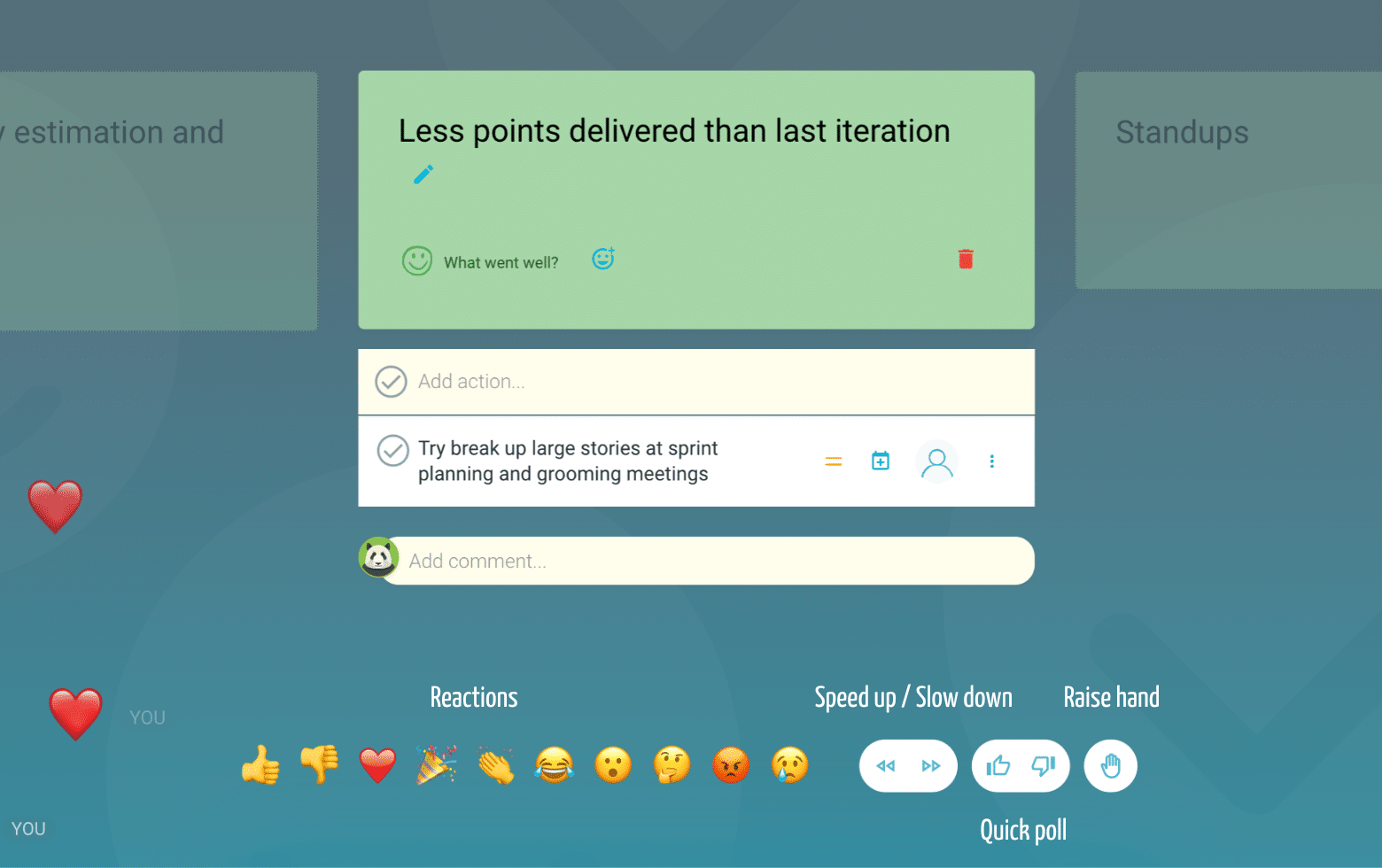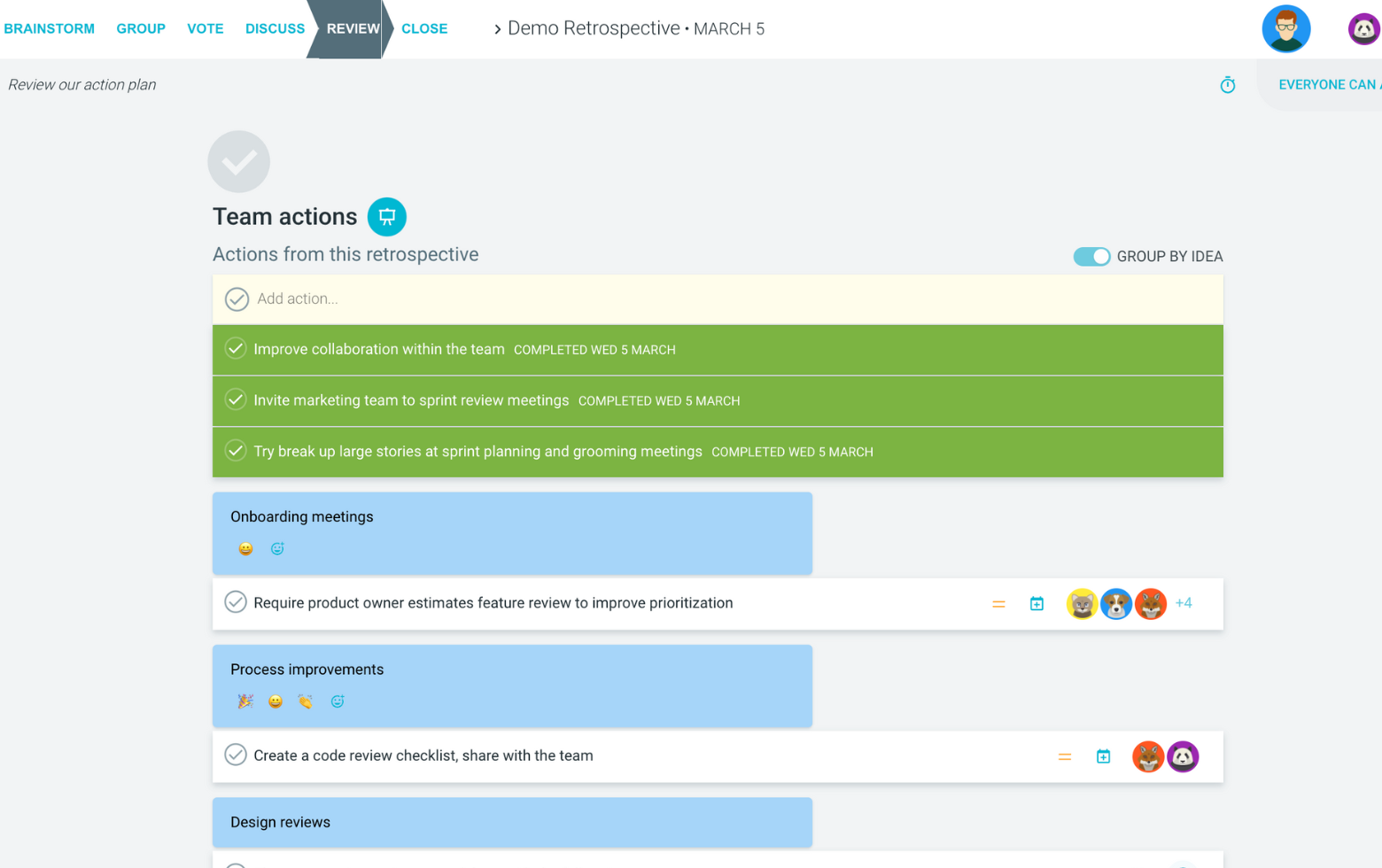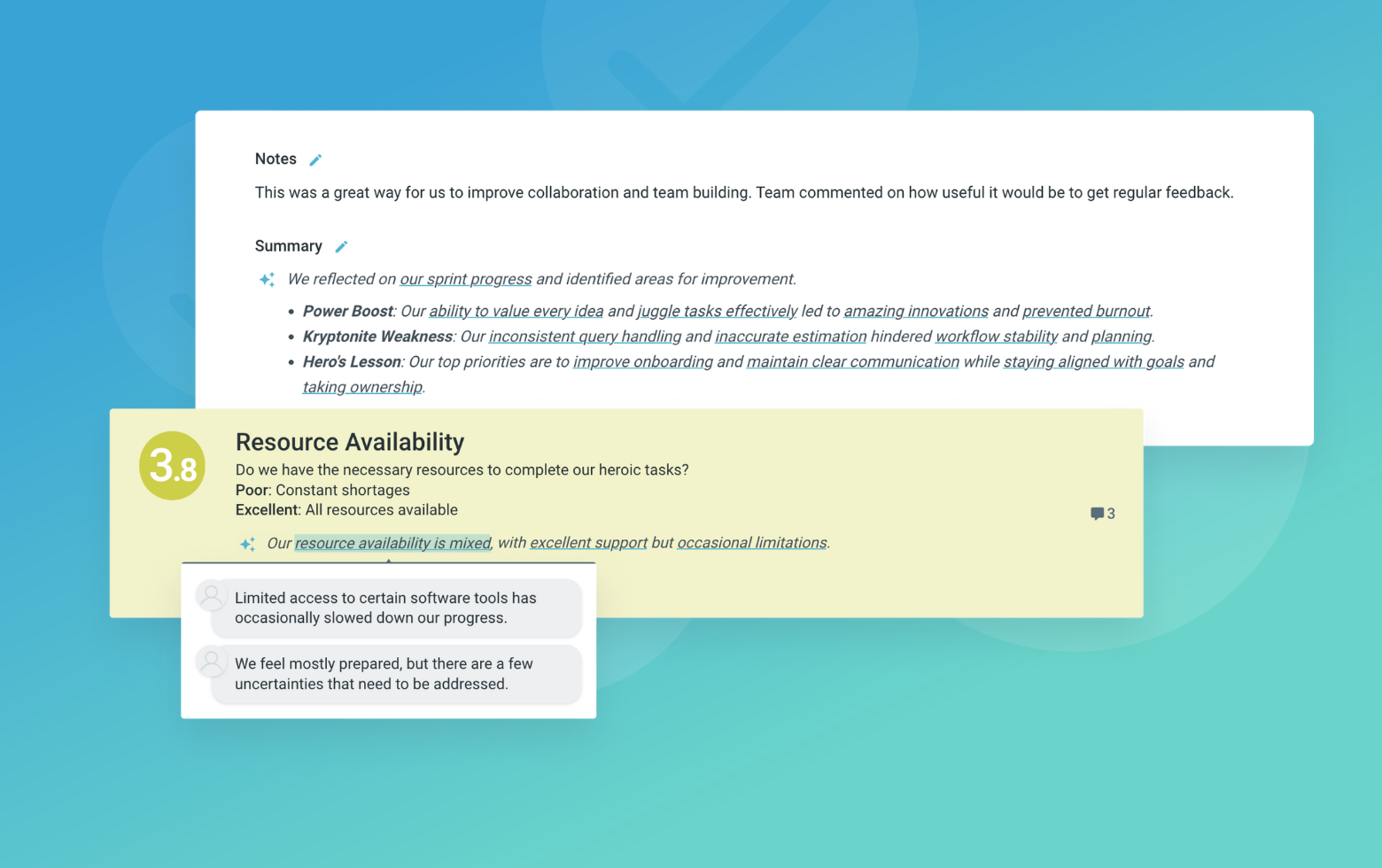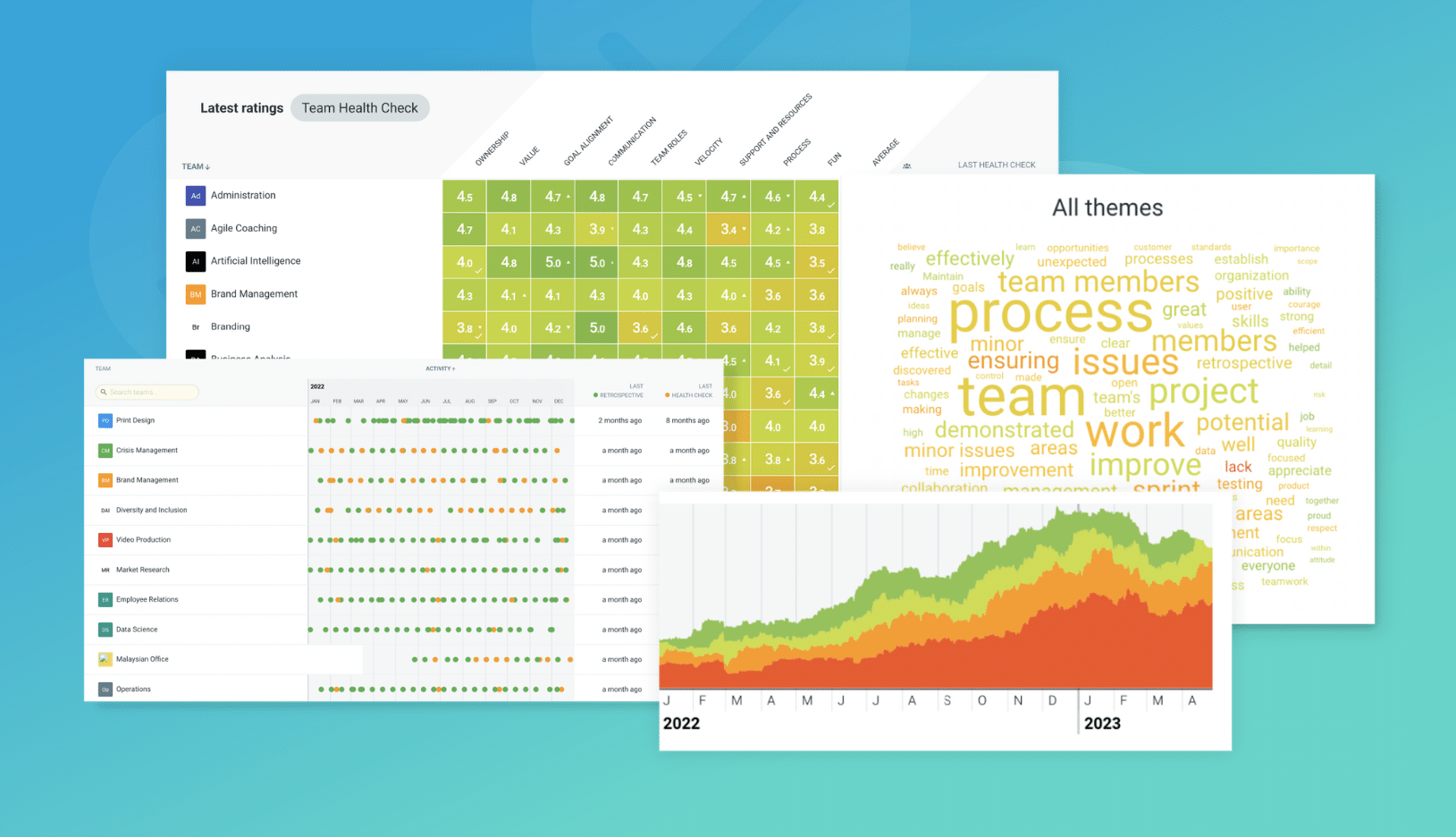What is the Anchors and Engines retrospective?
The anchors & engines retrospective is a great exercise to use when you want to focus on the velocity of your project. This retrospective template aims to identify factors within your team that are blocking or slowing it down, or speeding it up.
By keeping this exercise simple, it helps the team focus on what has been slowing them down and speeding them up. This allows you to create take away actions for the next sprint to ensure that you can meet your delivery outcomes.
This retrospective format is best run when there has been issues with sticking to the critical path, issues in meeting sprint goals or changes in deadlines.
Anchors & Engines retrospective format
Using the metaphor of being on a speedboat, the team imagines that they are heading towards their island destination. The boat is then the desired outcome or deliverable. A way to represent a sense of urgency is to imagine that there are people on the island who need to food and medical supplies. The goal is to get to the island on time.
Anchors
These are all the things that are slowing the people down or process down. Ask the team to list all the things that are holding them back.
Engines
There will always be a balance of both elements and this is certainly important. Having the right ratios is what is key to a successful delivery. If your project requires speeding up, then you may need to create more engines in the project or further boost (support) existing engines. At the same time, removing, cutting off or reducing the size of anchors that are creating a drag on the project will also have positive effects.
Suggested icebreaker questions for Anchors and Engine retrospectives
- Where did you go on your last cruise OR where would you like to go?
- Would you rather have a reliable anchor or an unreliable engine?
- If you were part of a boat, what part would you be and why?
Retro Rehearsal
Invite your team to rehearse the retro referencing a change in diet. Then, ask them to
- Name an anchor that slows you down or stops you.
- Name an engine that drives or carries you forward.
Ideas and tips for your Anchors & Engine retrospectives
-
Set the stage. Let people know that the objective of the retrospective is to address the current velocity of the project and how the team can improve this. It’s a great time to remind people that the goal is not to blame individuals but identify behaviors, policies or actions that might be improved.
-
Making this brainstorm anonymous will help provide a sense of safety especially if there are anchors that might otherwise be sensitive in nature.
-
While one of the questions focuses on current engines, you can also ask them to brainstorm potential future engines. These are things that are not currently in place (such as an online retrospective tool) that could speed things up.
-
Remember that there are some anchors that are necessary. Just like a real boat, an anchor is a useful device! Too many engines might push the ship in the wrong direction or off course.
-
One way to quickly reflect on the effectiveness of the actions taken is to redo the anchors and engine retrospective and to see if there have been any changes in the comments or votes.
-
A thank you goes a long way. Give a shout out to the team at the end of the meeting.
How to run an Anchors & Engines retrospective in TeamRetro
Start Your Session in a Click
Log into TeamRetro and choose your template. Customise questions and the workflow to create your perfect retro for your team.
Create Your Team Easily – No Separate Accounts Needed
Brainstorm Individually – Free From Bias
Smart Grouping for Faster Insights
Fair, Flexible, and Fast Voting
Engage, React, and Capture Key Insights
Walk your team through ideas one by one with Presentation Mode. Stay in sync, spark real-time discussions, and capture feedback with comments, live reactions, and polls—all in one place.
Turn Ideas Into Action
Propose next steps with team buy-in, get AI-powered action suggestions, and keep everything in one place. Committed actions sync to your personal dashboard and integrate with your workflow tools—keeping you on track.
Save, Share, and Stay on Track
Get quick AI-powered summaries, add facilitator notes, and store retrospectives in your library for easy access. Schedule your next session and track published actions to keep your team accountable at the next retro.
Turn Team Data into Actionable Insights
Uncover trends, common themes, and key engagement metrics at a glance. Track sentiment shifts, analyze conversations, and monitor completed actions to drive continuous improvement.
